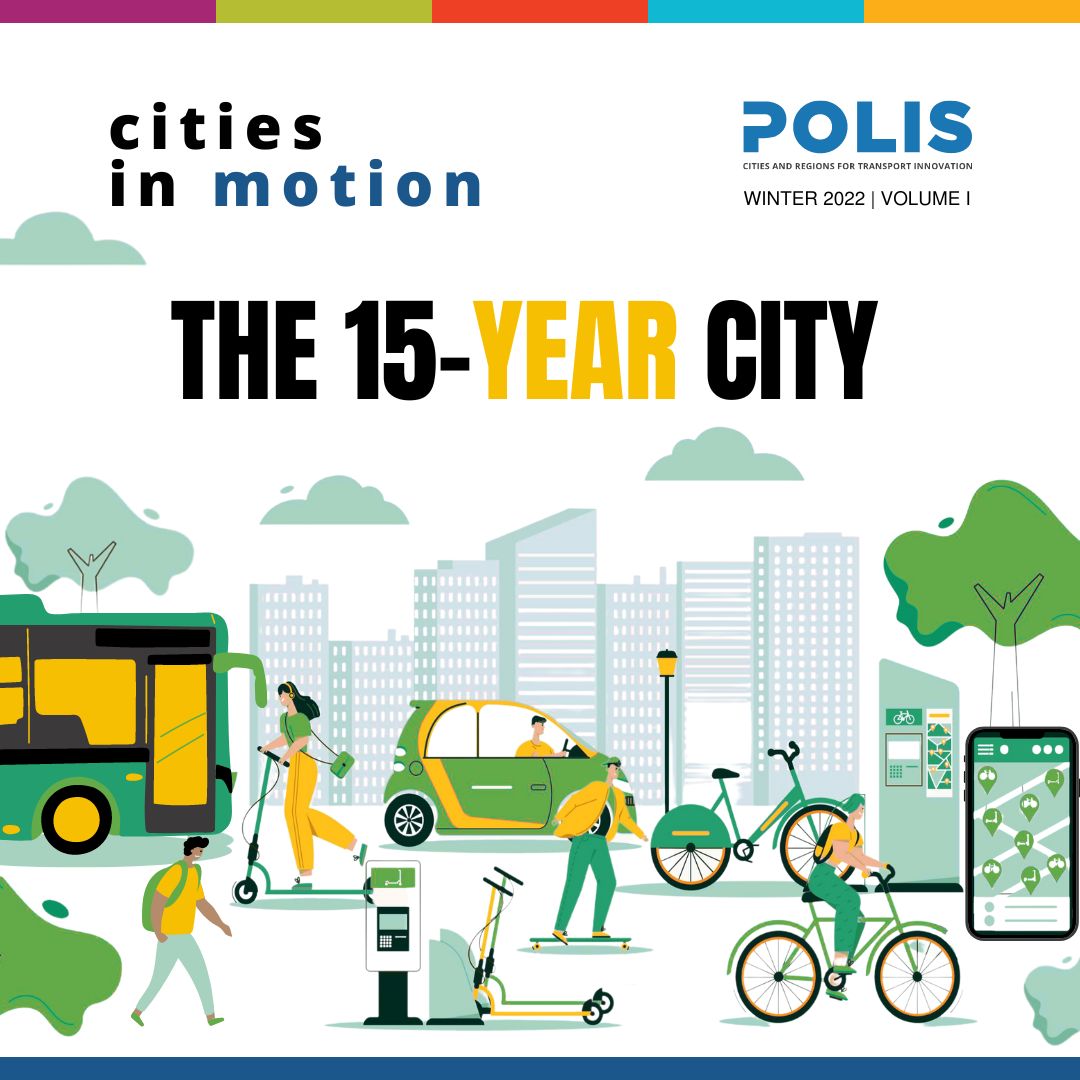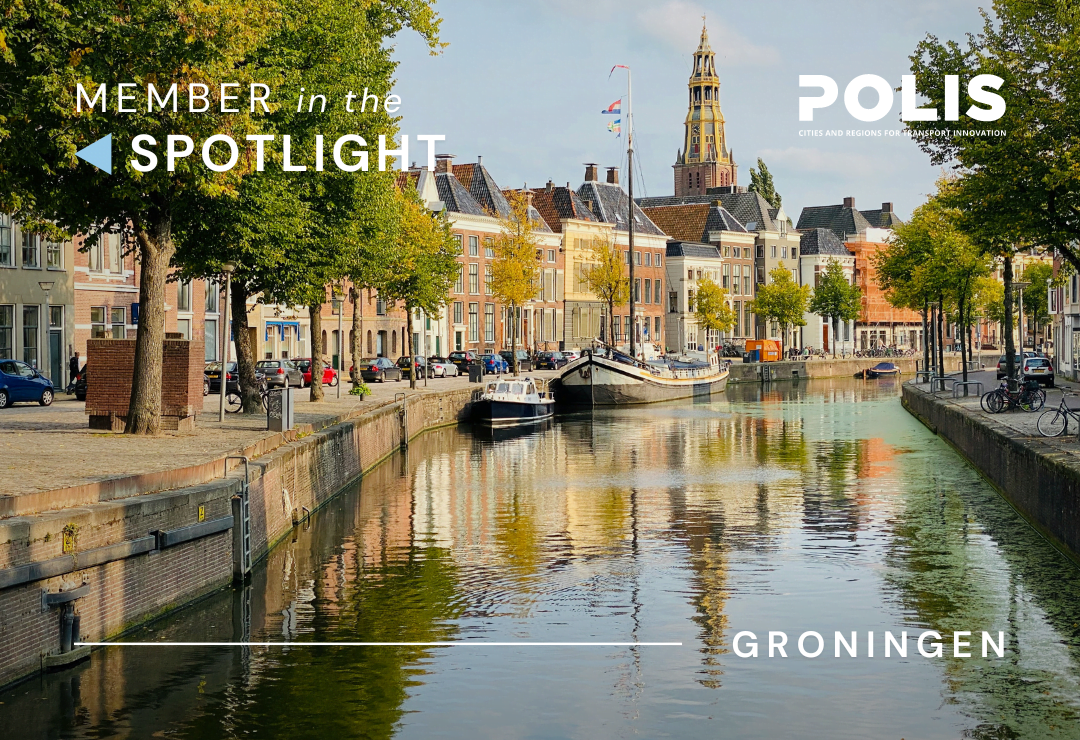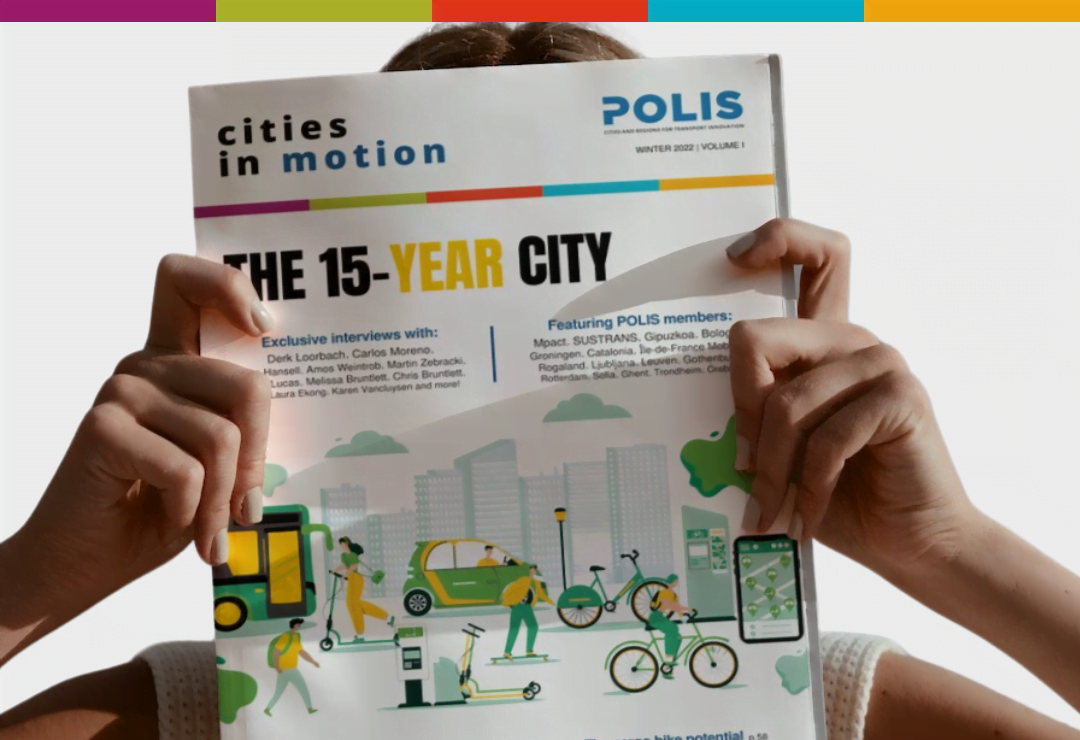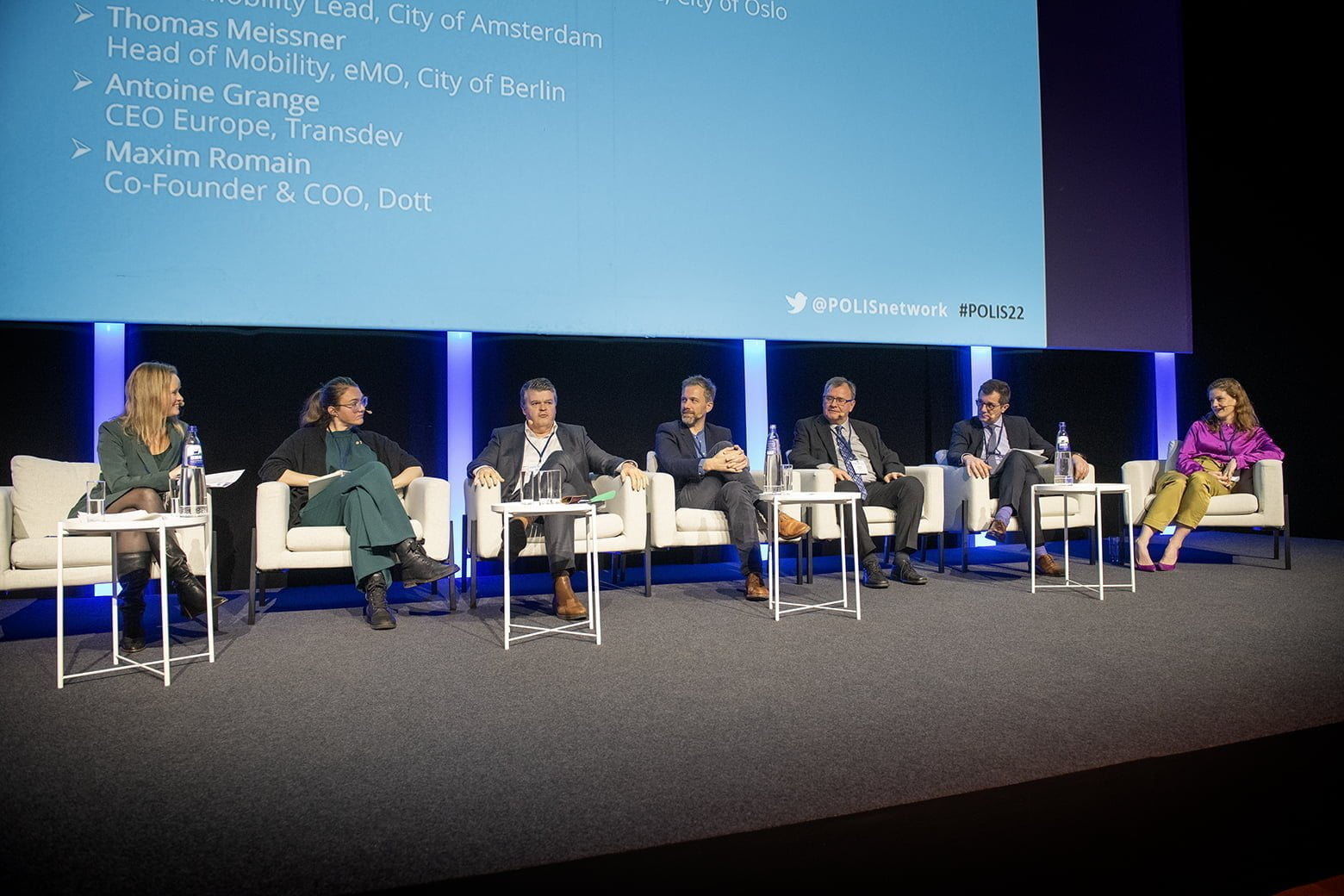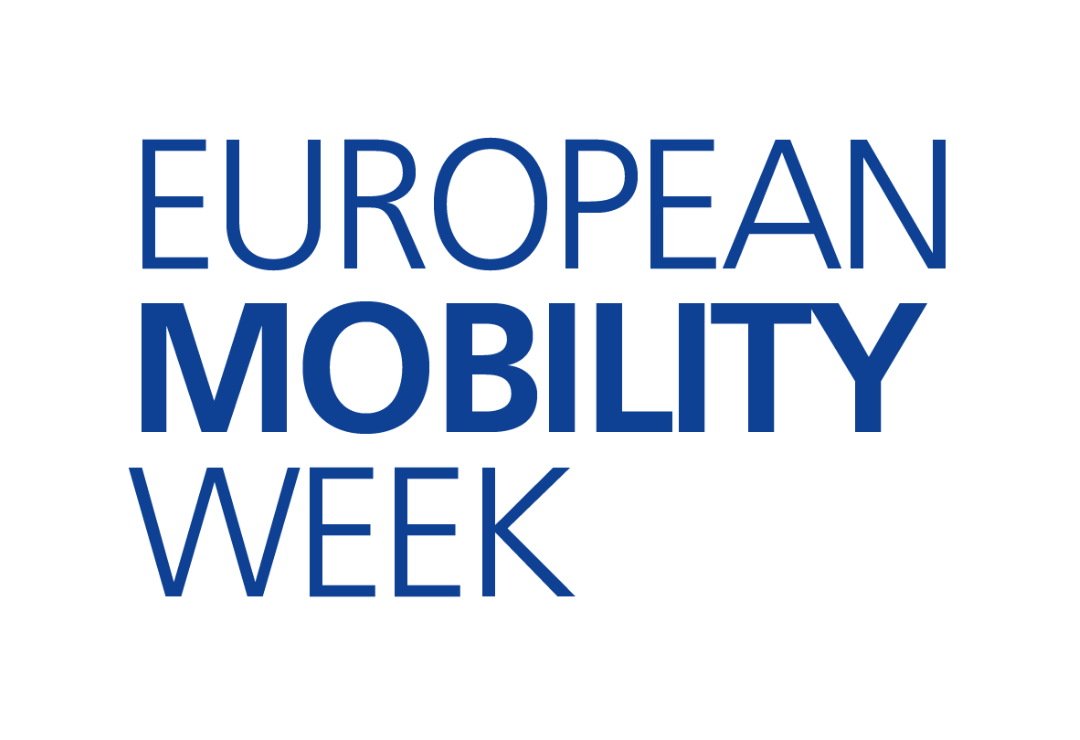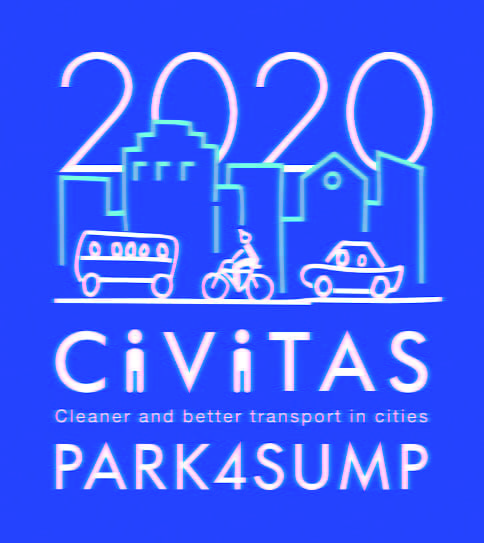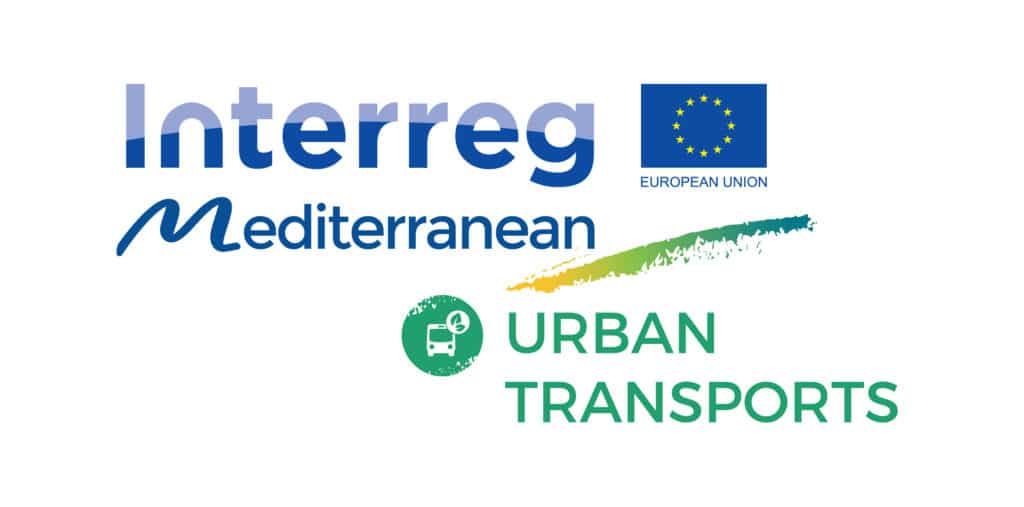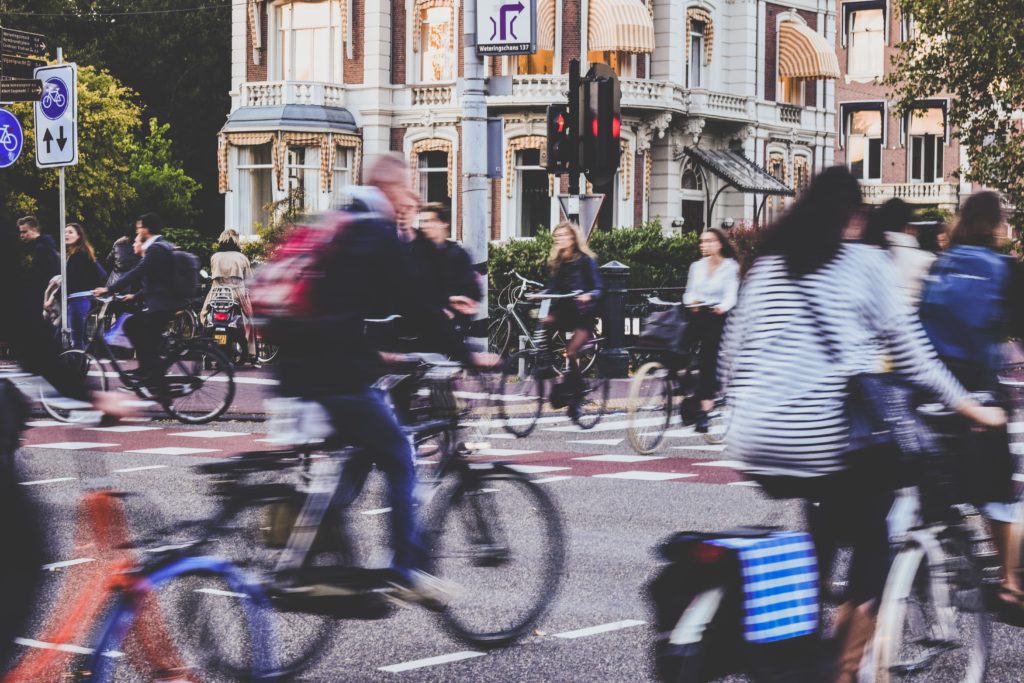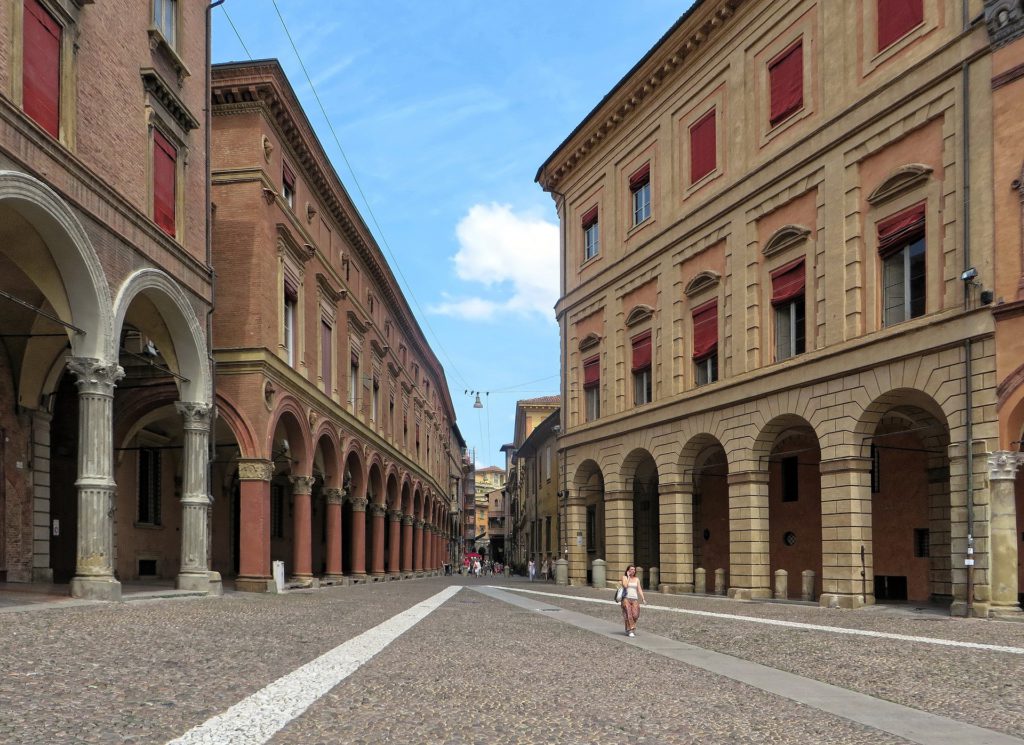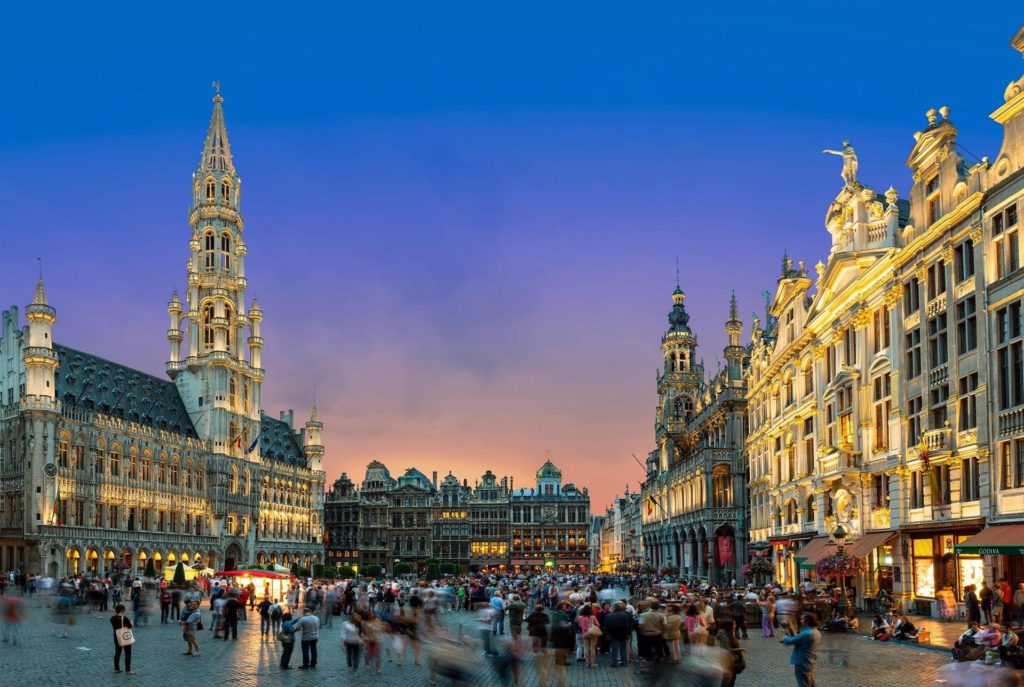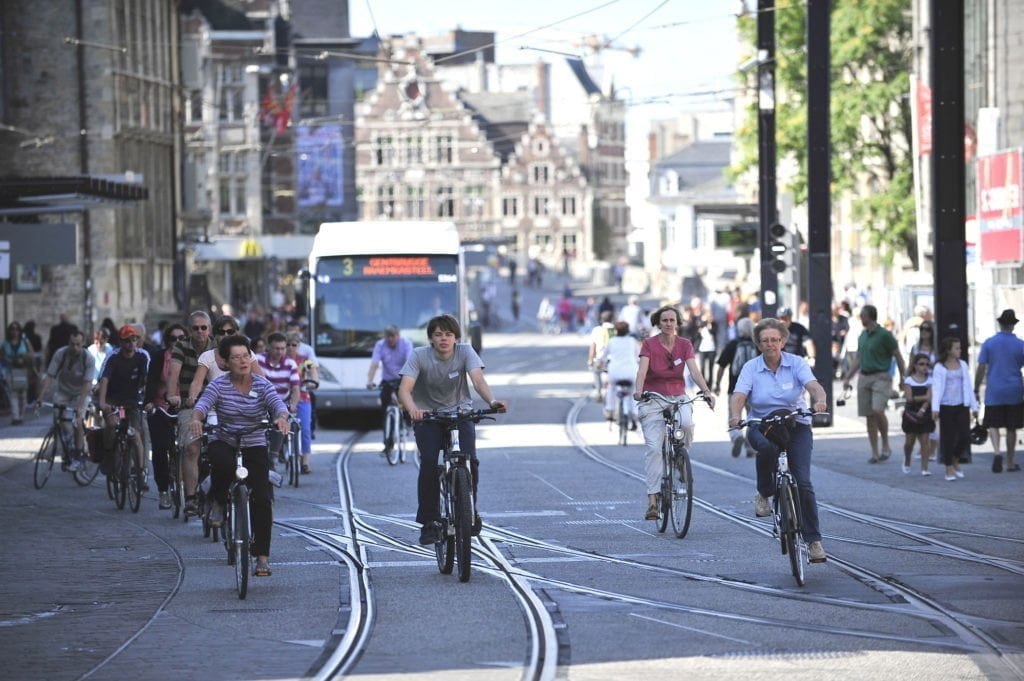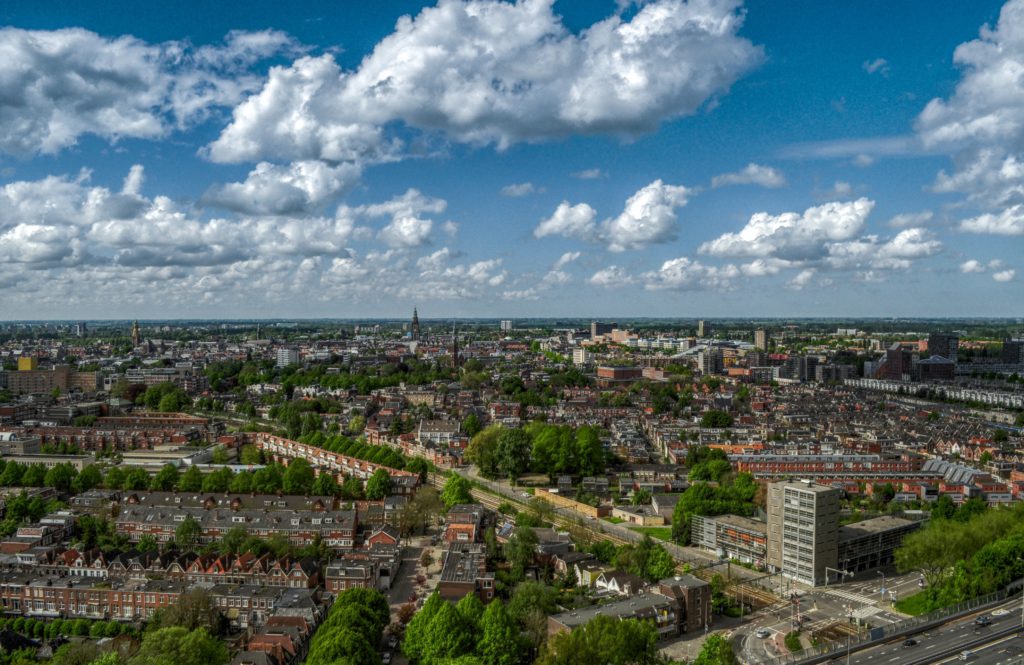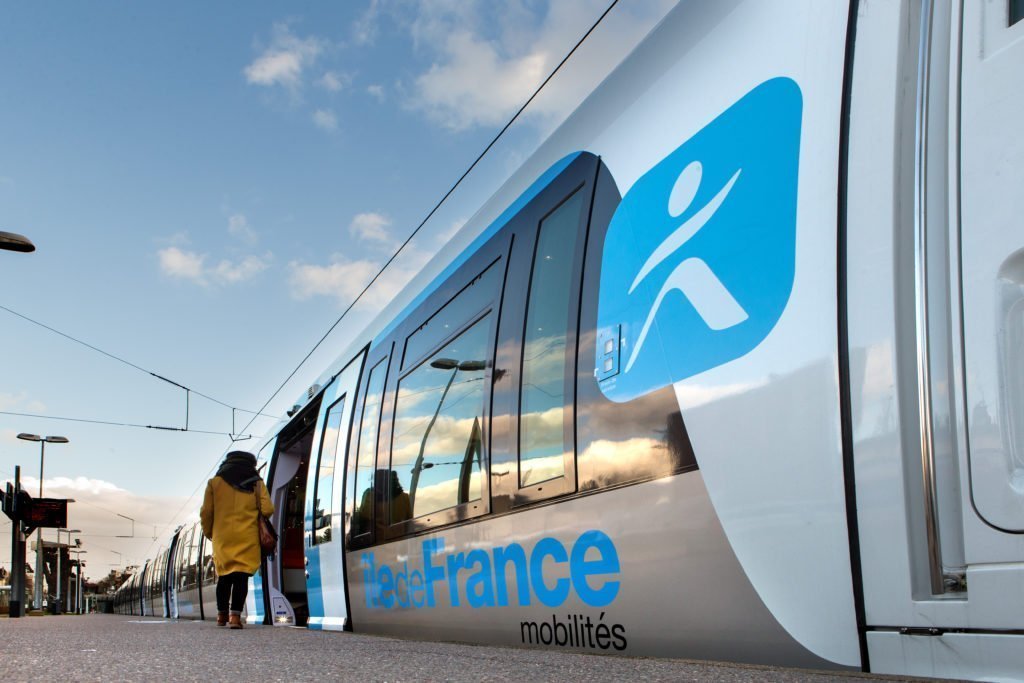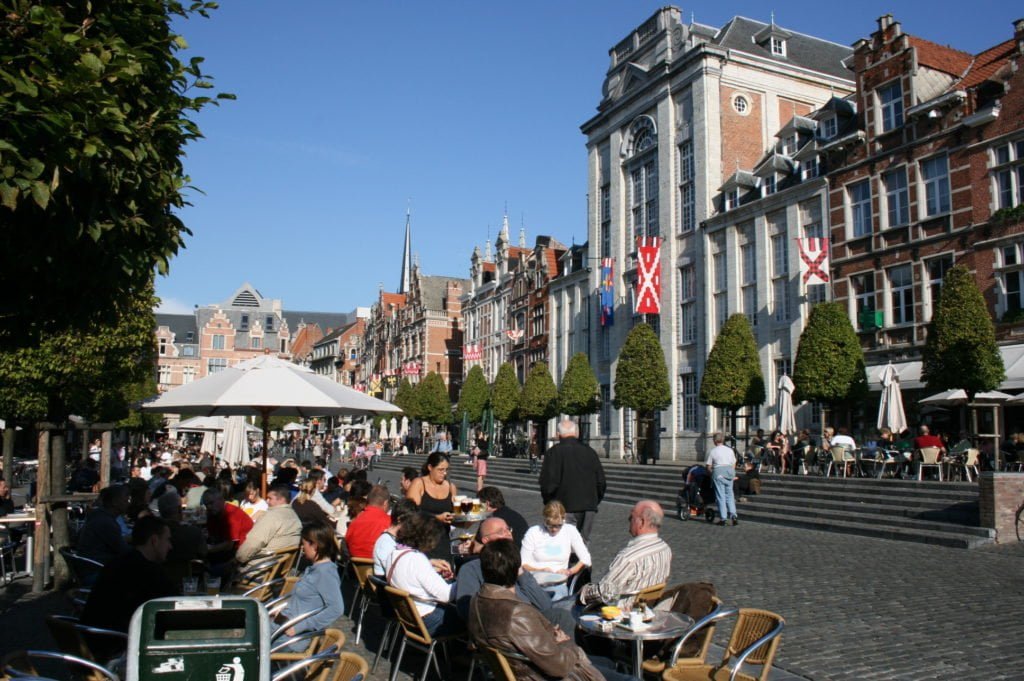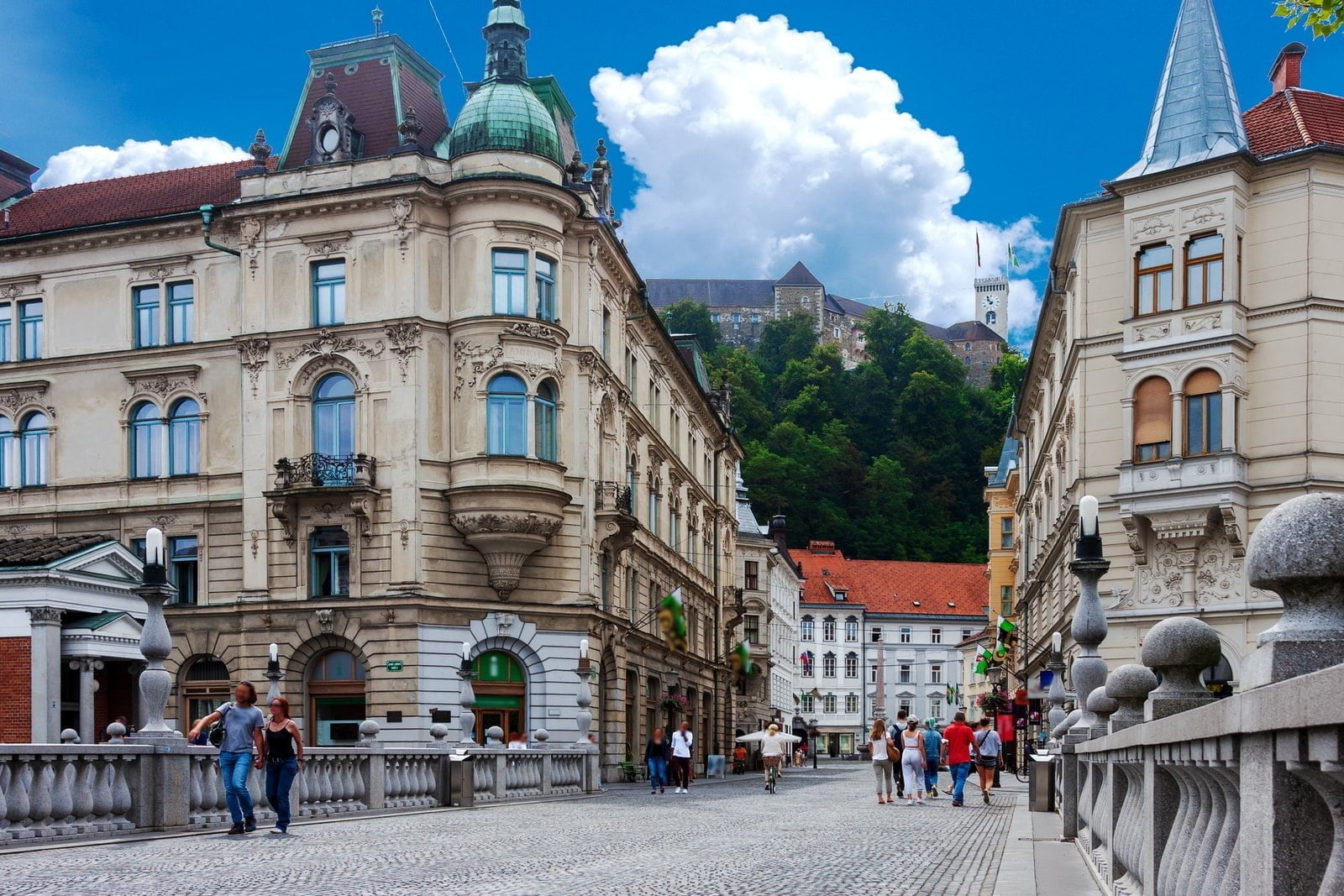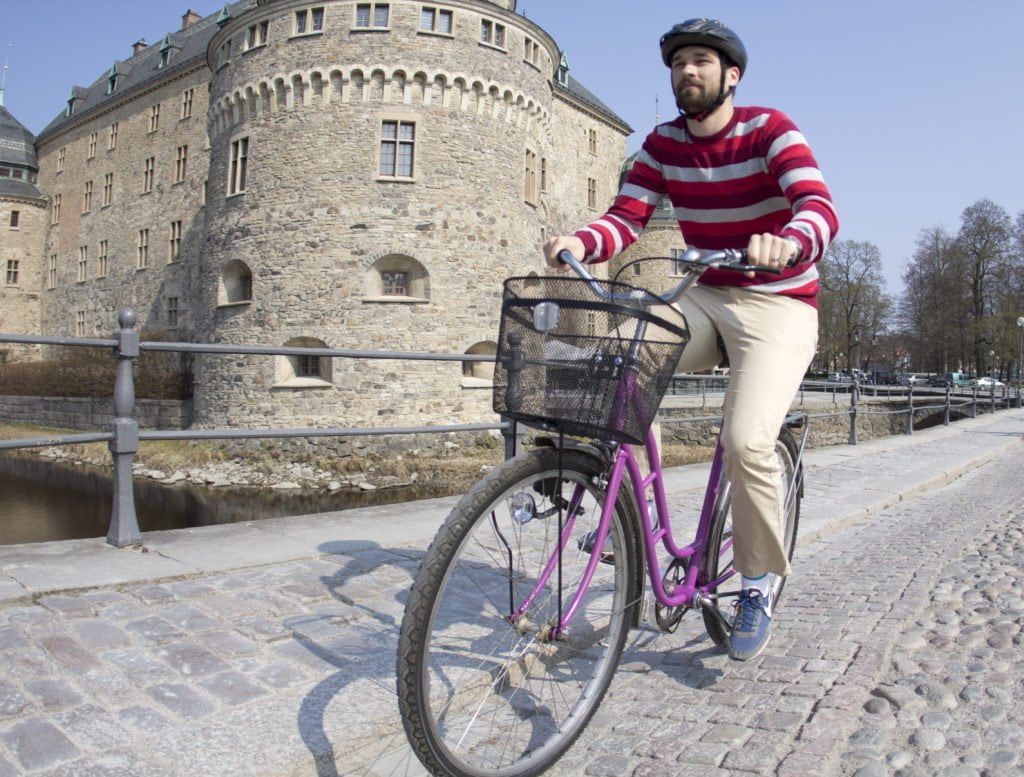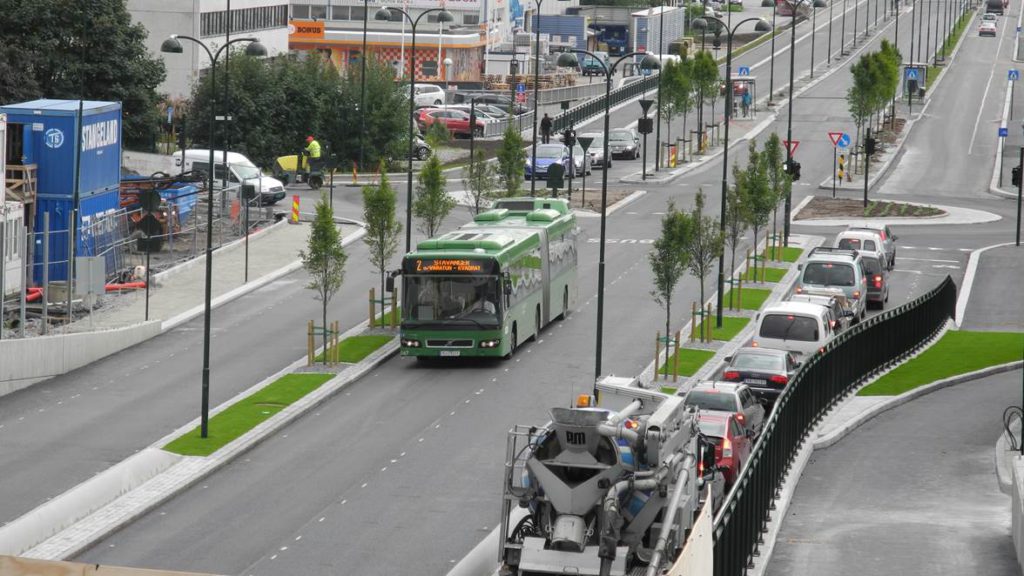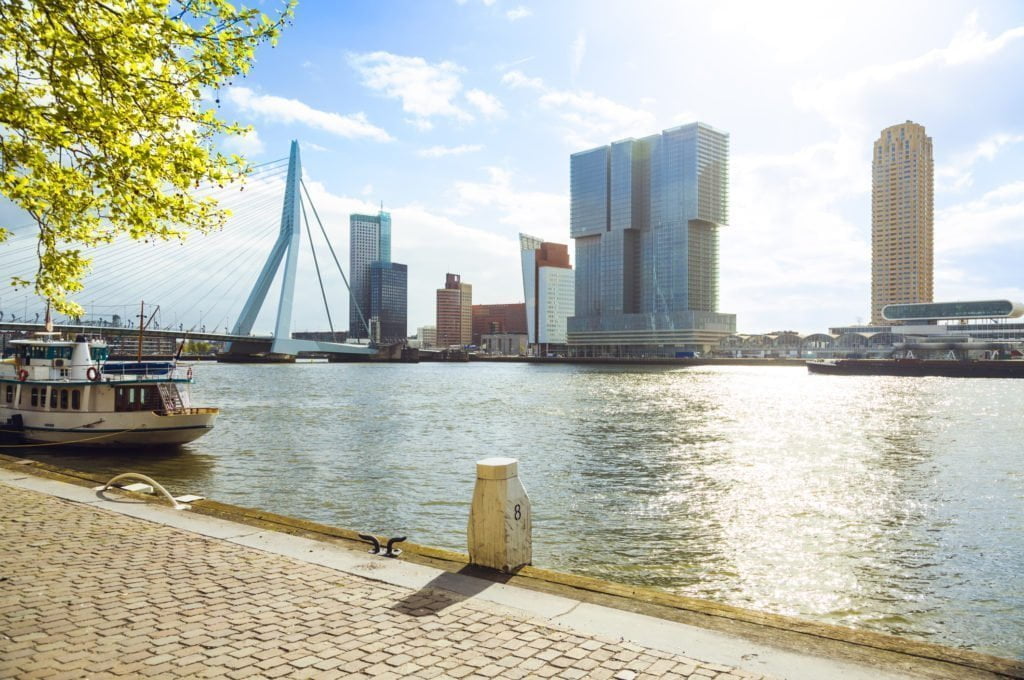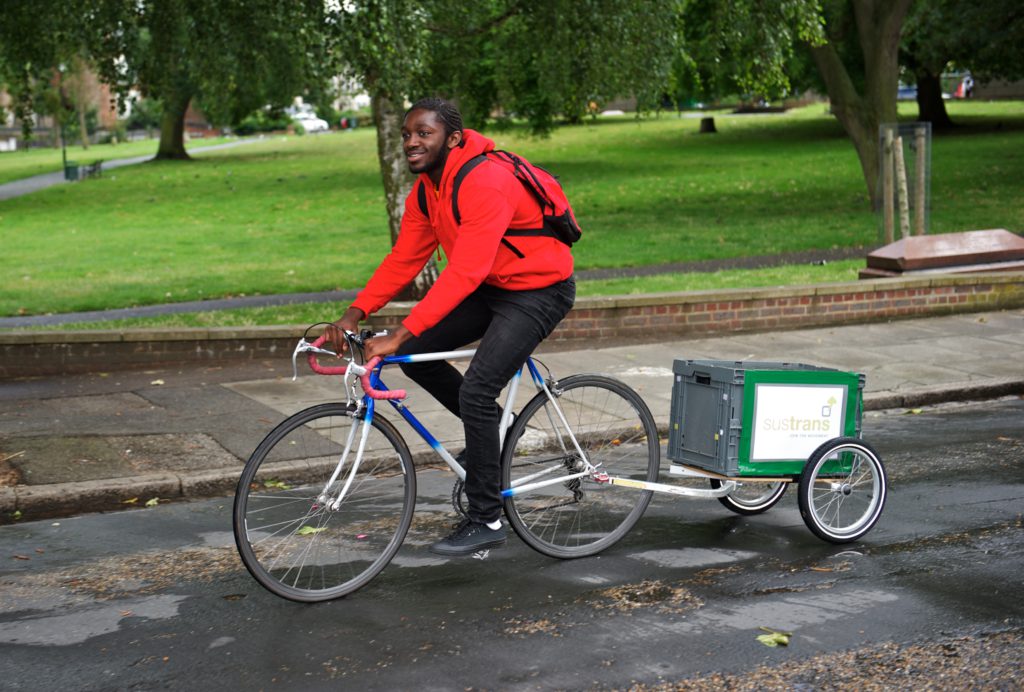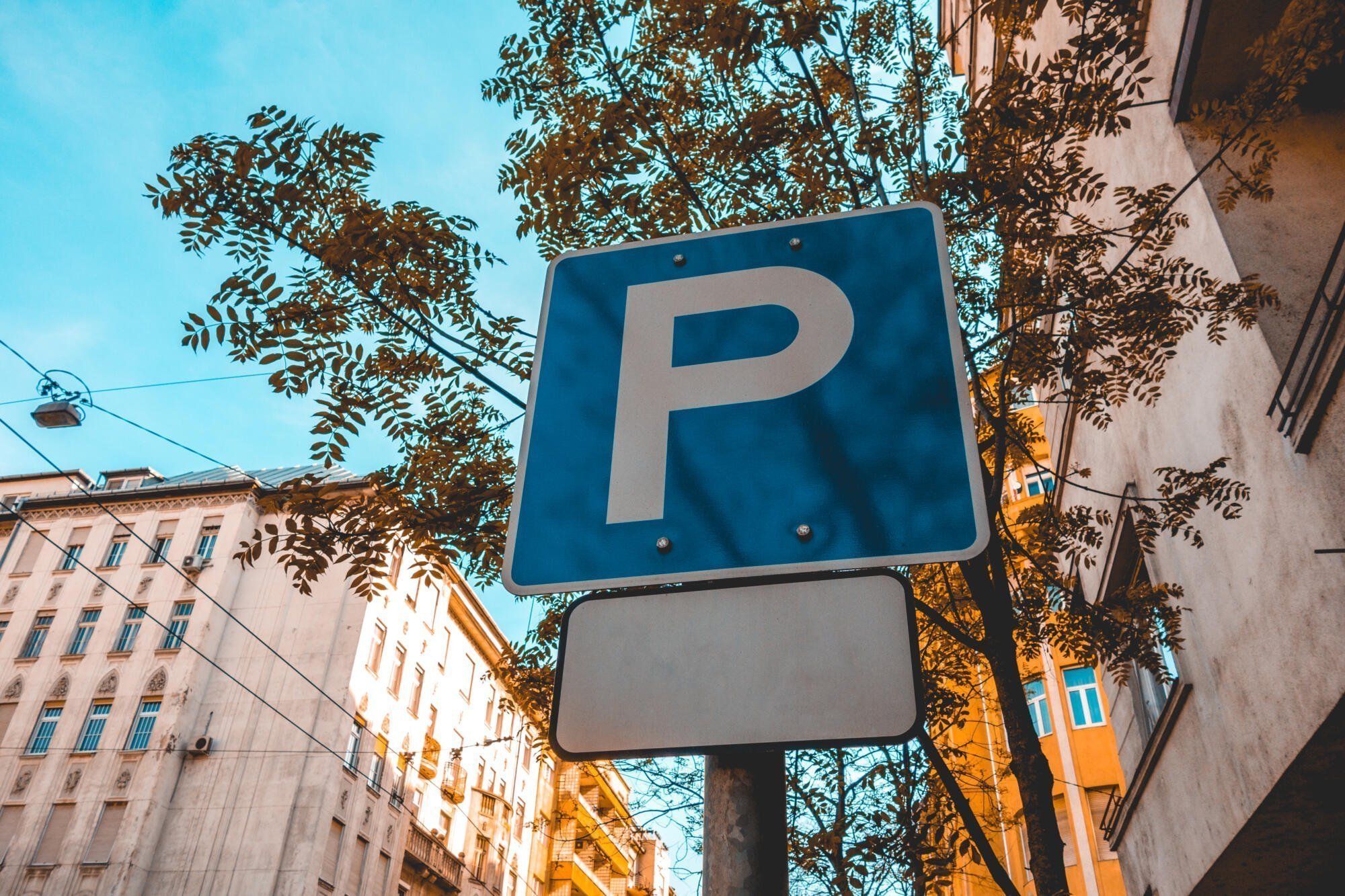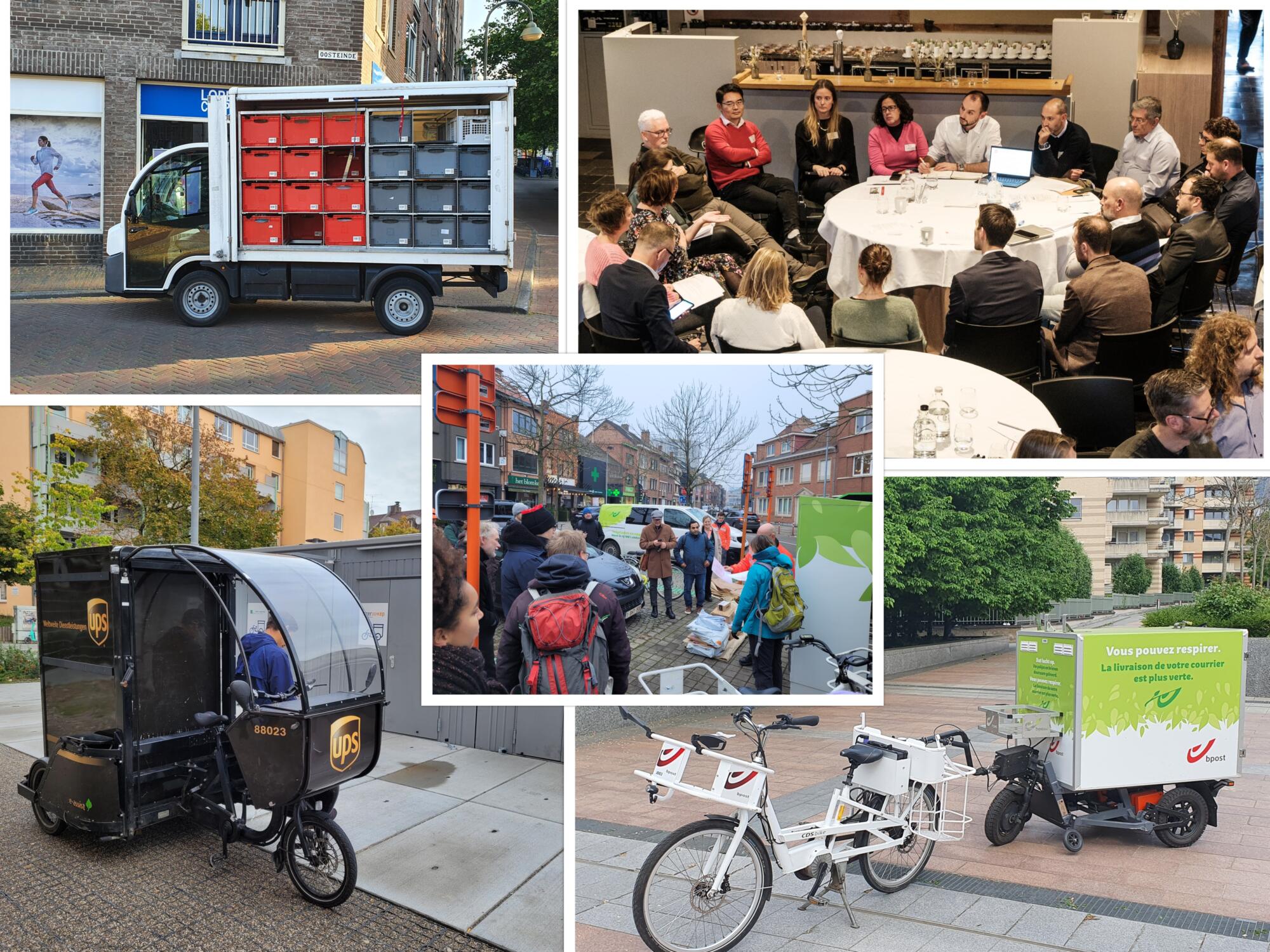Cities in motion - Volume I: 'The 15-year city'
The first edition of Cities in motion, 'The 15-year City', had its grand launch during the Annual POLIS Conference 2022 in Brussels, Belgium.

Credit: Yiwen
Envisioning the city of the future
Our cities are constantly on the move, forever innovating, growing, and evolving. Indeed, it is this perpetual motion that defines them. However, what particularly stands out today is the shift local authorities have made towards sustainability. After all, the future is on the horizon: in the battle against climate change, cities are placed front and centre, and if they are to drastically reduce carbon emissions and safeguard the urban spaces of tomorrow, immediate and meaningful action has to be undertaken before it is too late.
As a result, cities and regions have set ambitious goals for themselves to be delivered upon in the next 5 to 15 years, which include reducing air and noise pollution, limiting congestion, and achieving vision zero in road safety. If they are to achieve such goals by that timeframe, transforming the modalities in which we move becomes critical. After all, there are more people and goods moving now than ever before, making transportation the fastest growing source of emissions worldwide that accounts for 17% of global greenhouse emissions.
But what does revolutionising transport actually look like on the ground? We take a look.
The 15-year City

Credit: Kristof Lauwers
In this opening issue of Cities in motion, we reflect on what the city of the future, namely the city in 15 years, will have to look like. By highlighting pioneering concepts like superblocks, the 15-minute City, mobility hubs, integrated ticketing and many more, we discuss how this radical and innovative thinking will pave the way for the greener, smarter and more inclusive future cities.
We also reflect on the importance of political leadership and cooperation in guiding and maintaining this transition. This year, across POLIS’ Paris Political Group meeting and Leadership Summit in Glasgow, local decision-makers demonstrated their commitment to the decisive action required – something echoed by our call to action for the global leaders at COP 27. In addition, as the EU’s Climate Neutral and Smart Cities Mission gets underway, we look towards 2030, hearing how many of the 28 POLIS members selected for the Mission plan to meet the climate neutrality target.
We hope this inaugural edition of Cities in motion inspires cities, regions, and other stakeholders alike to rethink classic understandings of mobility, and that empowers them to take advantage of the wide range of tools available for building more sustainable mobility systems. It is by engaging through knowledge sharing and sharing best practices that we aim to collaboratively bring forward an actionable, zero-emission future.
From ambition to action

Credit: Matej Kastelic
At POLIS, going from ambition to action has been a central part of our agenda. The first issue of Cities in Motion features the work of our members, from capital cities such as Brussels, Ljubljana, Paris and Amsterdam, to smaller municipalities and regions, such as Bologna, Rogaland, Flanders, to leading knowledge institutes such as Mpact and Sustrans, sharing their best practices on moving passengers and goods in new and innovative ways.
We also explore some of the cutting-edge technologies and concepts shaping the face of today’s transport systems, such as UVARs, automation, urban air mobility, MaaS products, and much more!
This first issue also focuses on inclusivity in urban mobility, something that POLIS has been working hard on in recent years, particularly in 2021 when we launched the Just Transition Agenda to put affordability, safety, and inclusivity at the heart
of sustainable mobility policy. After all, climate ambitions require everyone to be on board: our articles shed light on often overlooked yet vital elements of just transportation. Thus we examine the relationship between mental health and travel, tackling the gender gap that exists within the transport sector, exploring what queer mobilities really means, and bridging the urban-rural transit divide.

Credit: Andy Holmes
'The 15-year city' also includes exclusive interviews with some of the leading mobility personalities in Europe, such as Delft-based mobility advocates Melissa and Chris Bruntlett, queer mobility experts Dr Karen Lucas, Dr Martin Zebracki, Amos Weintrob and Luke Hansell, or our Annual Conference keynote speakers, Derk Loorbach, Director of DRIFT at Erasmus University Rotterdam and Carlos Moreno of the Sorbonne University, renowned for developing the '15-minute City’ concept.
The encyclopedic coverage of urban transport across this issue reflects the extensive meld of tools available for creating more sustainable mobility systems and the wealth of topics being addressed by POLIS and its members. No single city or region is the same, each is shaped by unique geographies, economies, and governance; nonetheless, it is only through sharing and learning what works (and what does not!) that we can tackle the enormous challenges ahead.
Karen Vancluysen, POLIS Secretary General
Read Cities in motion Volume I: 'The 15-Year City', HERE.

Channelling Change

15-year city
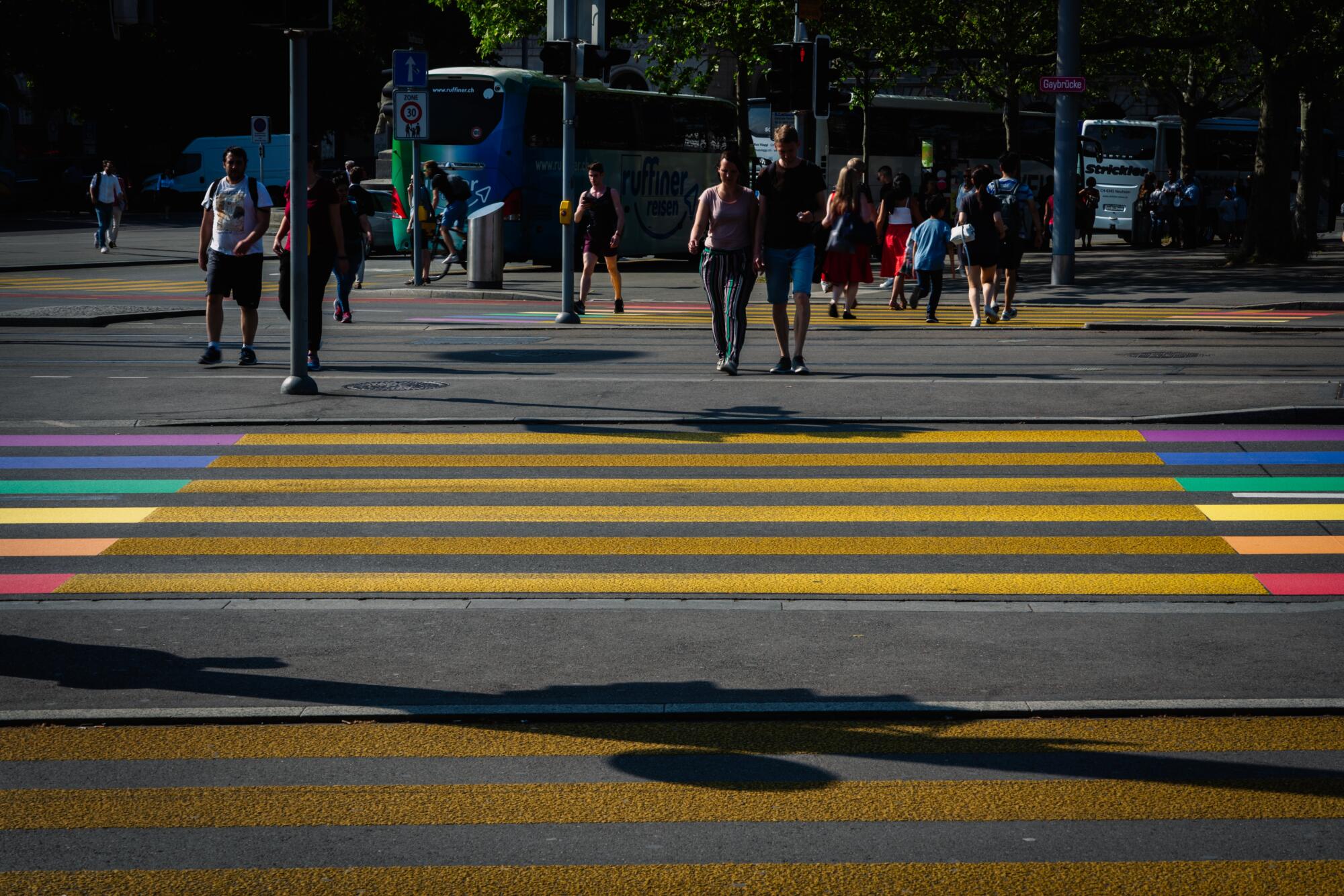
Queer mobilities

A parking transition
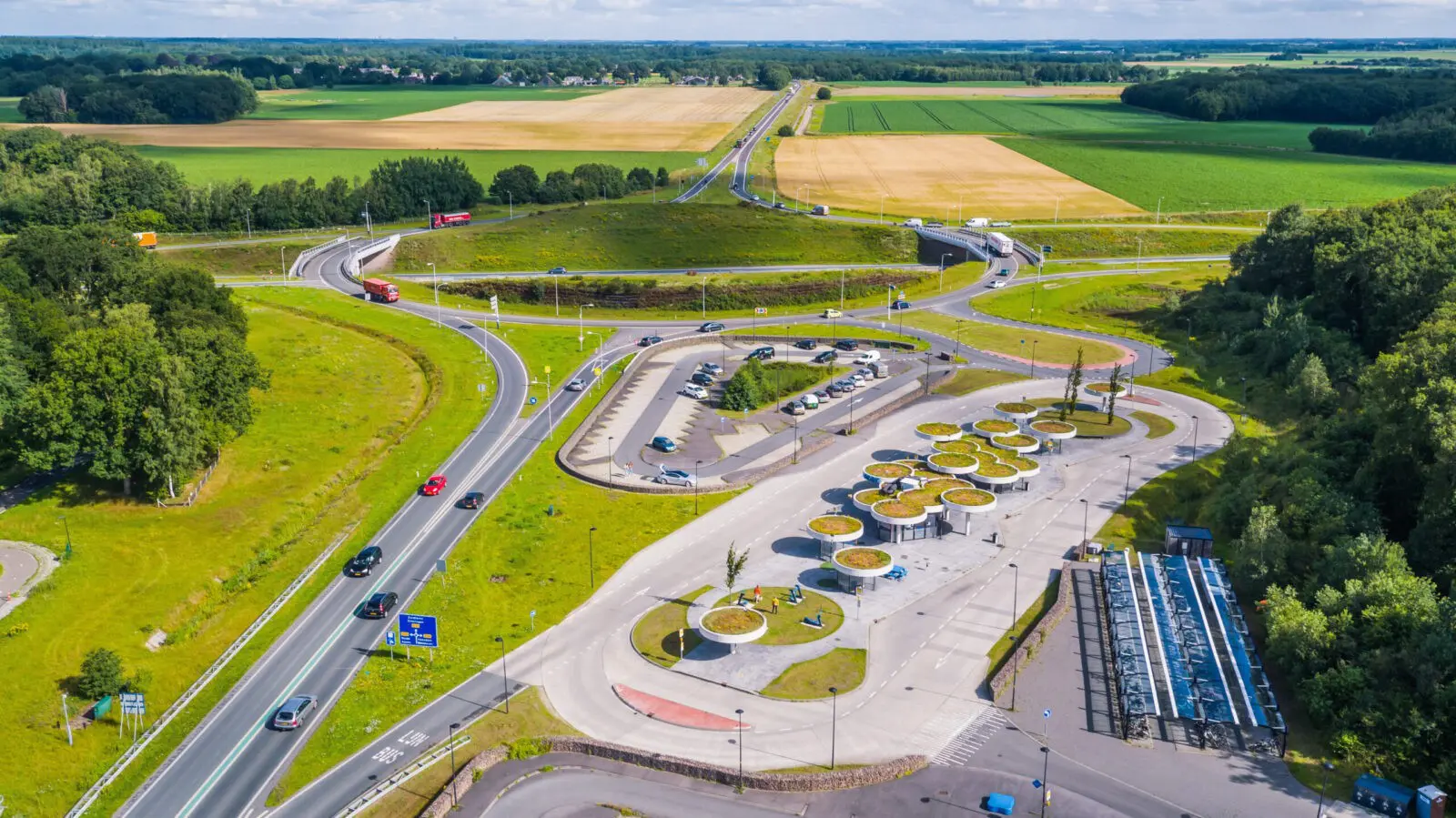
Rural to urban
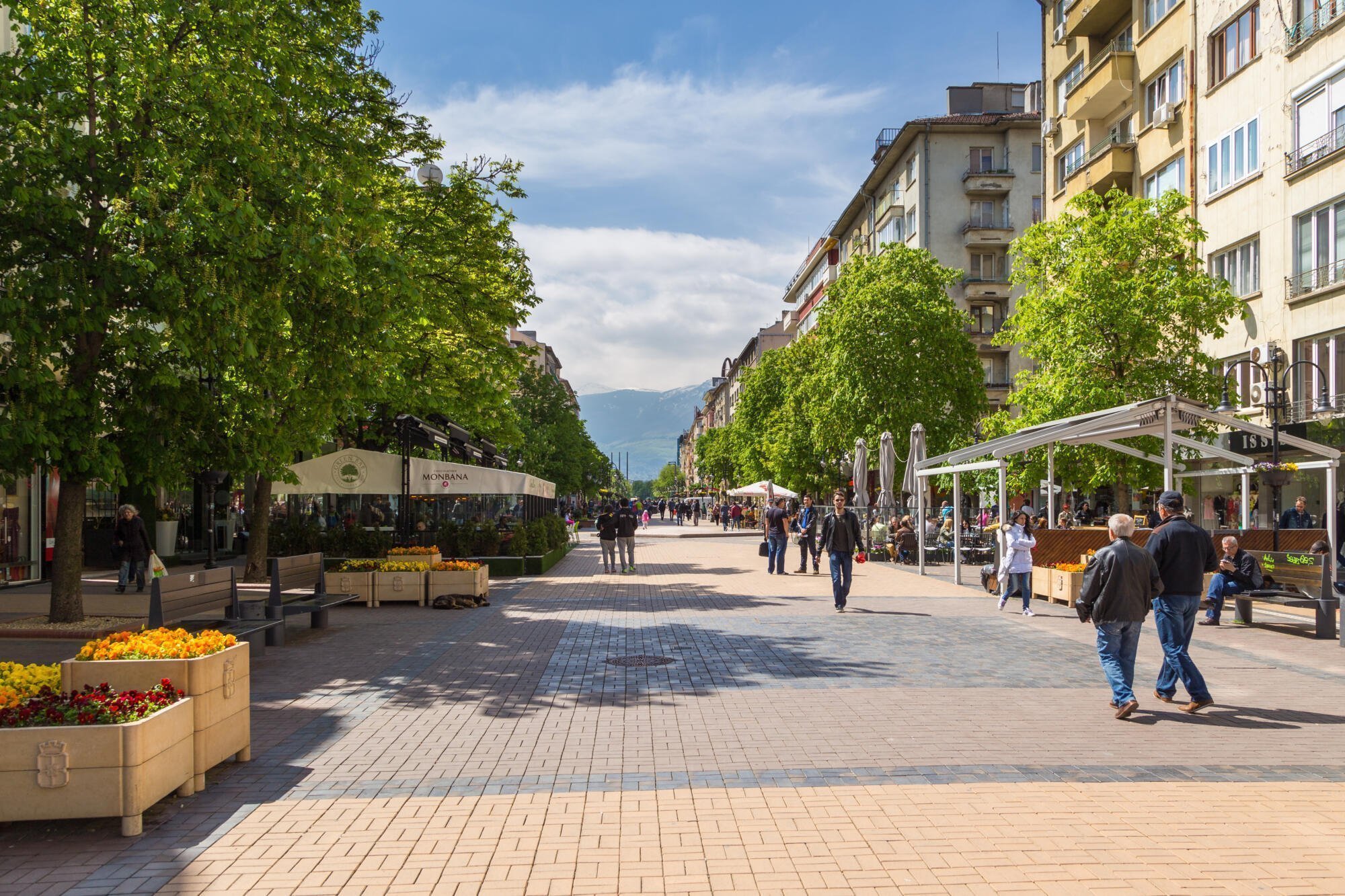
UVARs: present and future

Reaching for the sky
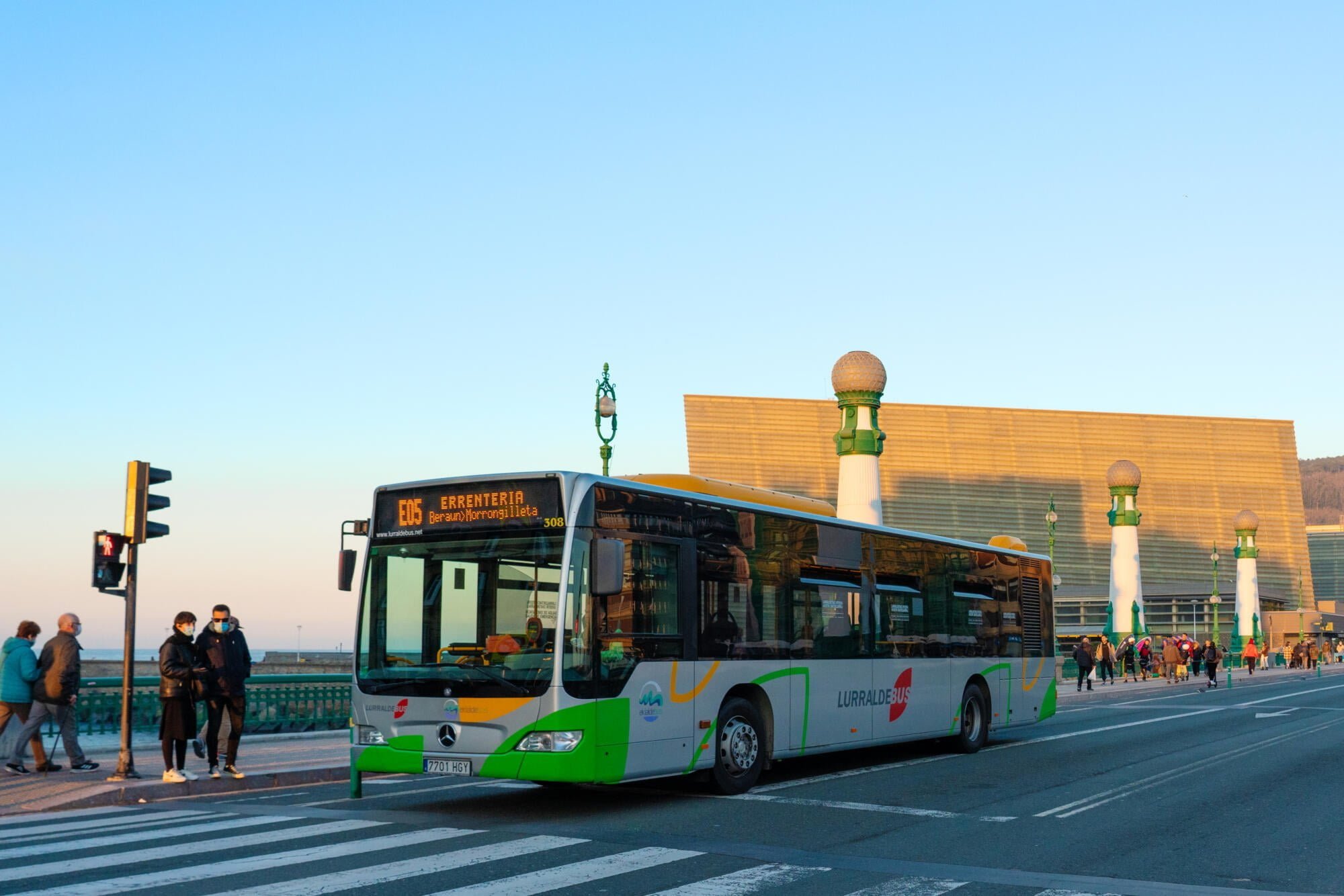
Gipuzkoa, for the people
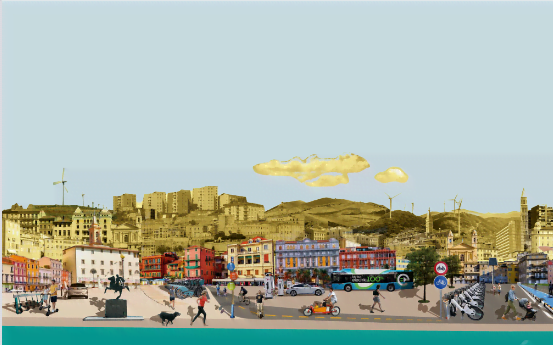
A Mediterranean perspective

Active changes
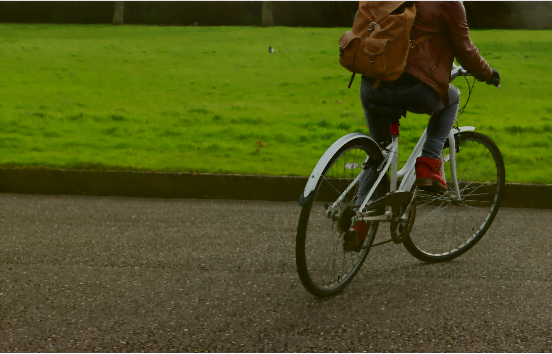
Bicipolitana Bolognese

Minds matter!
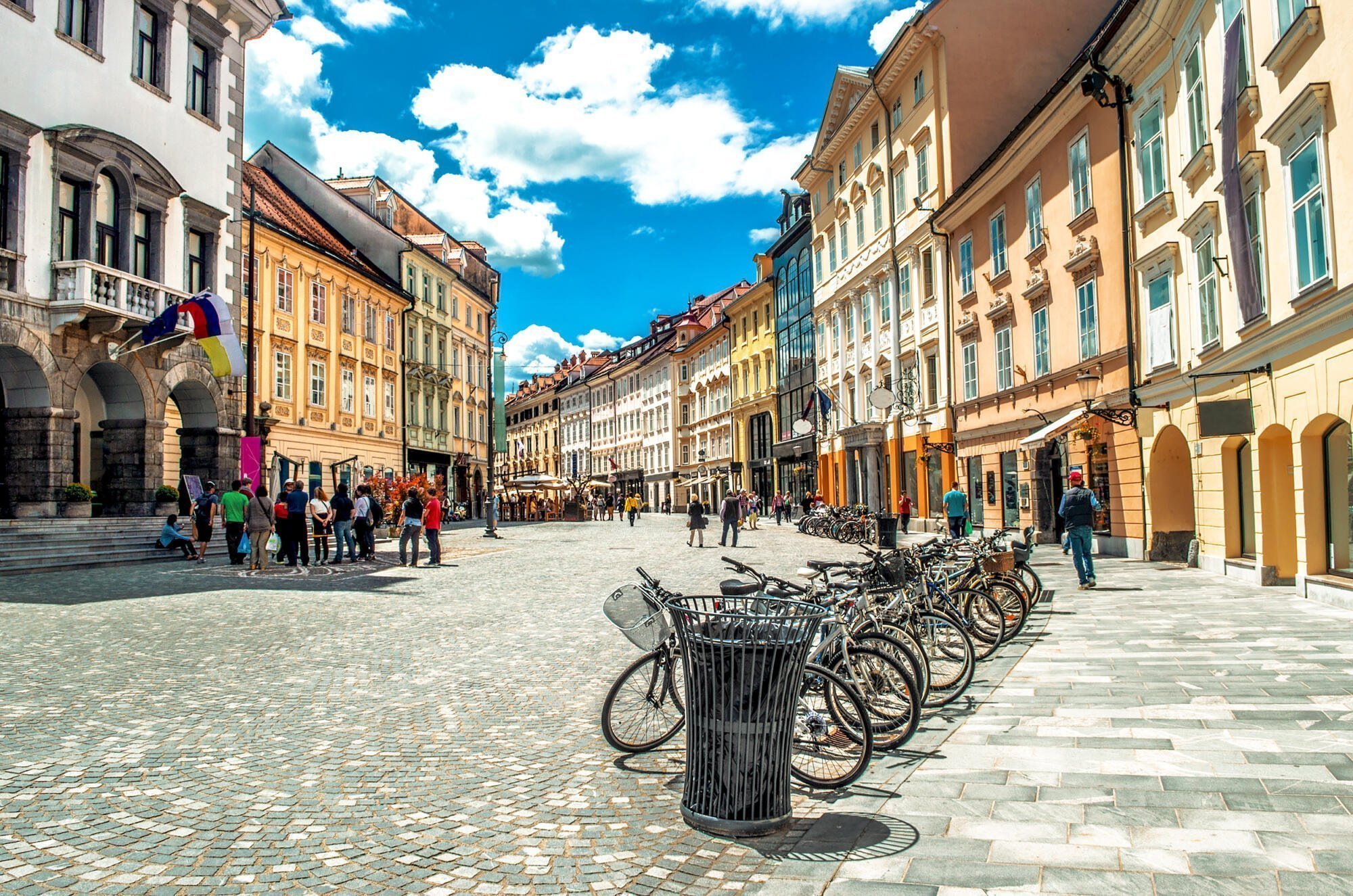
Ljubljana’s leap
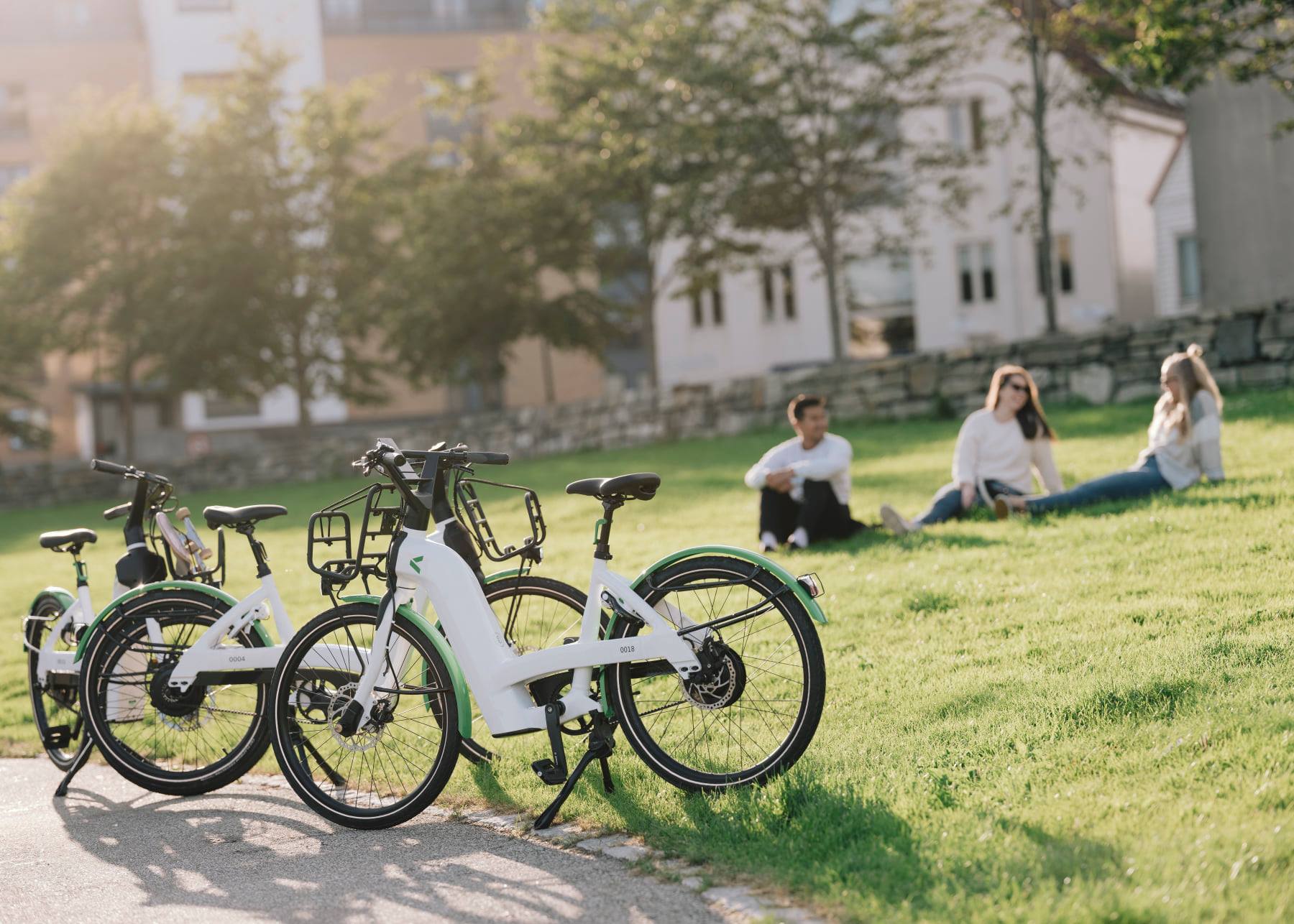
Rogaland rides out
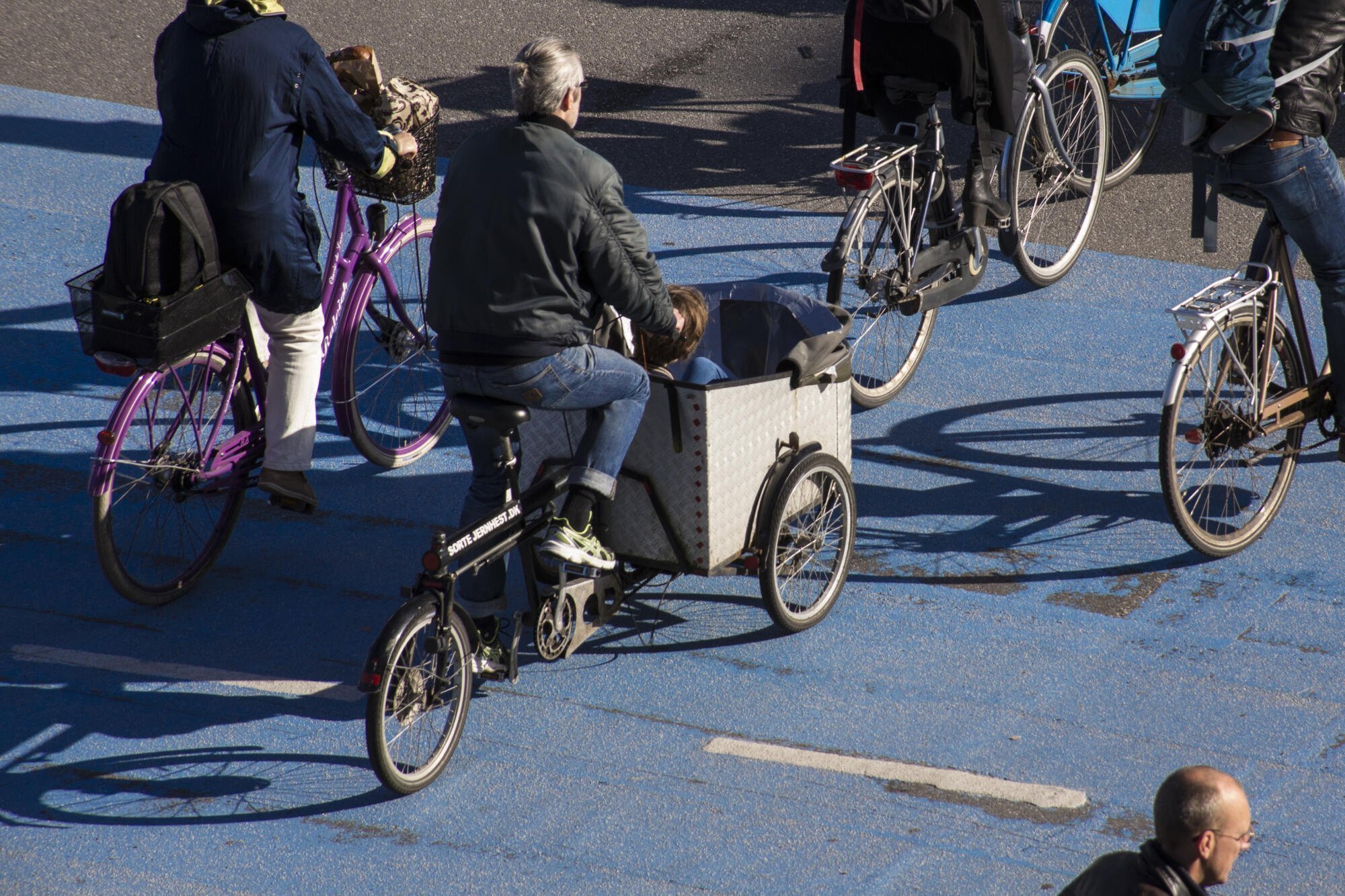
The cargo bike potential

COP27: if not now, when?

Cities on a mission
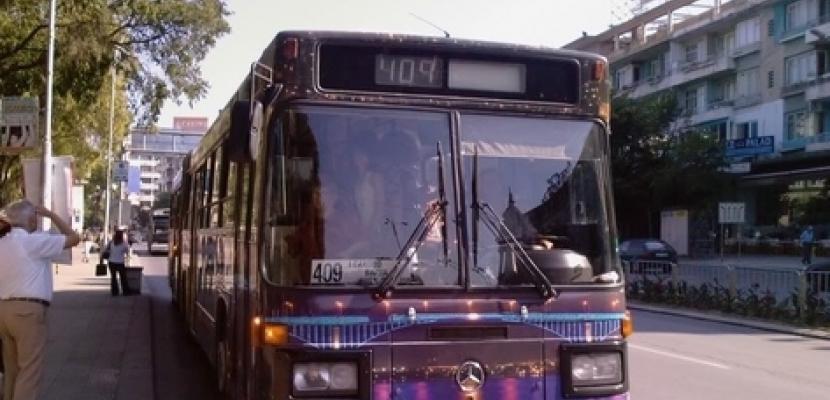
Learning from disruption

Women on the move

Road safety future
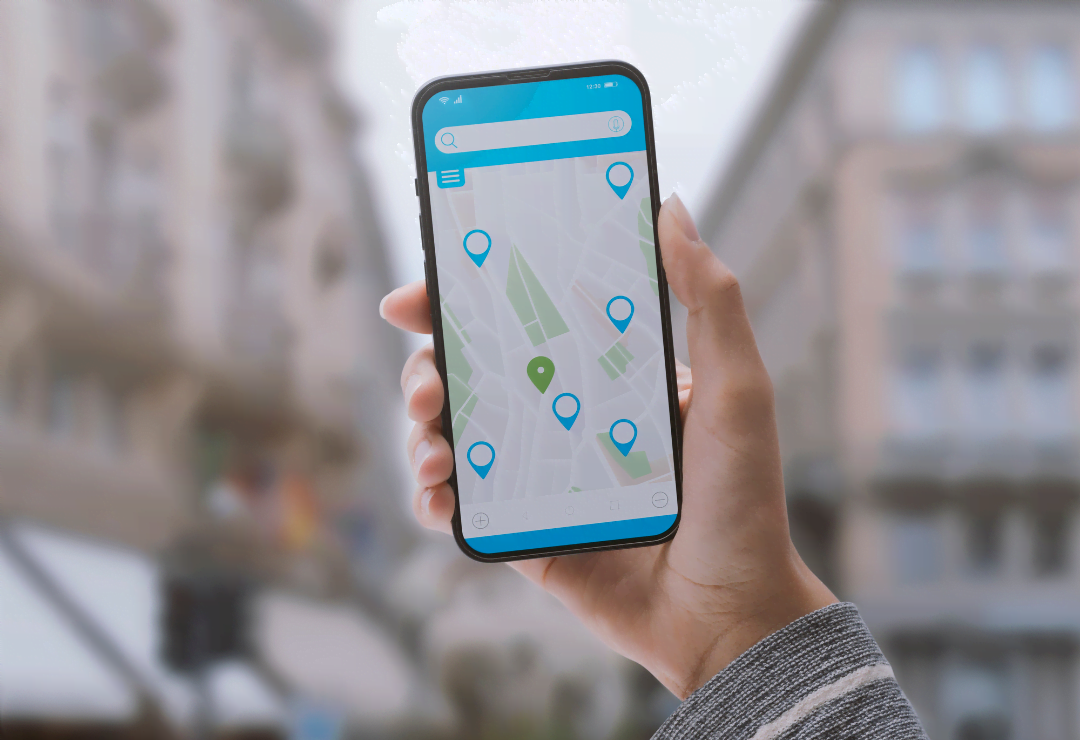
The human touch

Traffic management 101

A new MaaS strategy

Just make data sharing… fair
